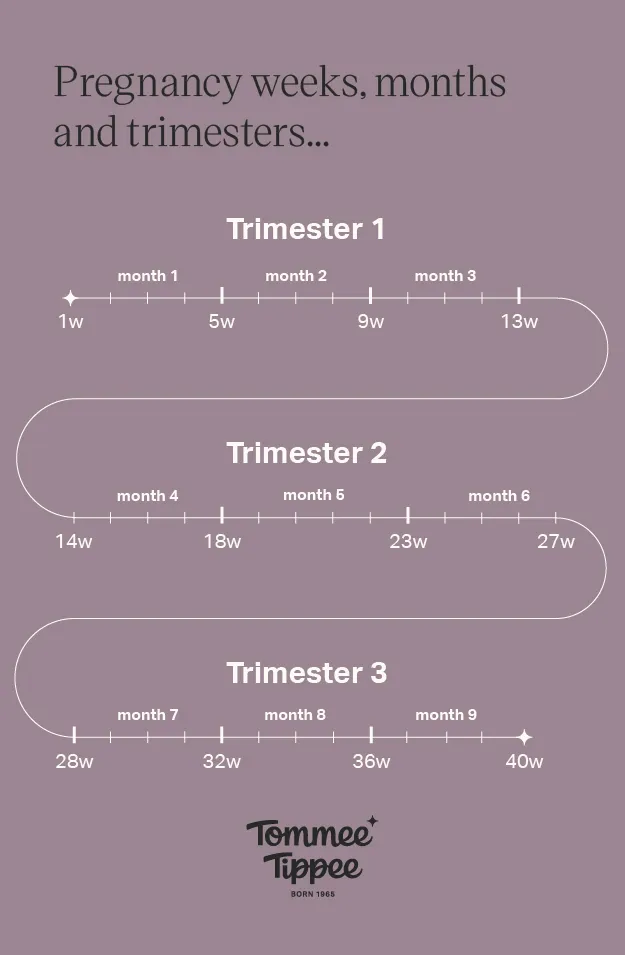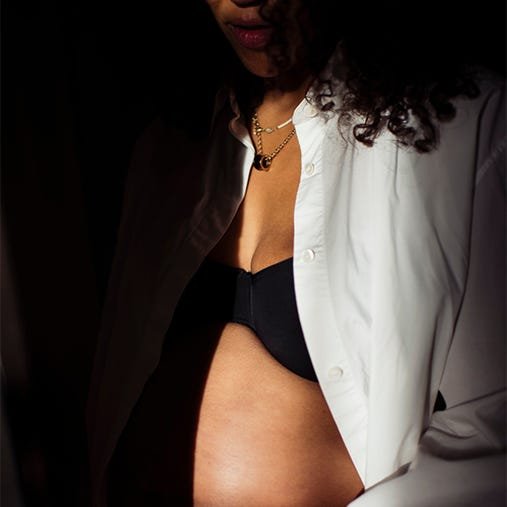Pregnancy is a time filled with excitement, but it can also be overwhelming and confusing to keep up with the significant changes that are happening to your body.
Breaking down the process into trimesters can make it a little easier to keep track. These distinct phases provide a roadmap for monitoring your baby's growth and your body's changes.
So, if you're a first-time parent who's looking to learn more about the initial stages of pregnancy, excited to understand the second trimester, or getting ready for the final phase before childbirth, or even an experienced parent seeking a refresher, this comprehensive guide is here to give you valuable insights and answer any questions you've got about the trimesters of pregnancy.
How many trimesters are in a pregnancy?
The 40 weeks of pregnancy are split into three trimesters. Understanding these trimesters is essential for tracking a parent's health, monitoring their baby's growth, and preparing for birth.
Many people now also refer to the postpartum period - the three months following birth - as the fourth trimester.
How long is a trimester?
Each trimester contains either 13 or 14 weeks.
- 1st trimester: 1 to 12 weeks
- 2nd trimester: 13 to 27 weeks
- 3rd trimester: 28 to 40 weeks (or until birth)
You can work backwards from your due date to figure out how many weeks pregnant you are. Our due date calculator page is designed to help you.
The trimesters by weeks
Here's a basic look at how the weeks, months and trimesters of pregnancy are counted:

Key development milestones by trimester
Now that we've covered the three trimesters and how many weeks there are in each, let's run through some of the key development milestones and changes that pregnancy trimester brings.
1st trimester
Week one to 12 of pregnancy involves conception and implantation. It's during these weeks when organ formation begins, and an embryo develops to a foetus as its size increases significantly.
Common pregnancy symptoms during the first trimester include morning sickness, fatigue, breast tenderness, headaches, needing to urinate more, constipation and mood swings. Remember to take things easy and get plenty of rest!
2nd trimester
Week 13 to 27 of pregnancy is when most babies start to kick, move, and turn from side to side. It's around now when they also start developing reflexes, like swallowing and sucking.
This 'golden' trimester is usually when many pregnant people experience relief from the earlier symptoms they had, and generally feel more energised.
But as your baby grows and your body changes to accommodate them, you may experience other symptoms such as leg cramps, heartburn, and backache.
3rd trimester
The third trimester - aka the final stretch in the run-up to a baby's arrival - stretches between weeks 28 to 40 of pregnancy. During these weeks, your little one will begin to look more like the little bundle you expect to see at birth. They continue to put on weight, and by 37 weeks (full-term), their lungs will be ready to take their first breath.
As your pregnancy comes to an end, you may experience Braxton Hicks contractions, tightening or aches around your bump, and swelling in your ankles and feet. Now's the time to put your feet up and relax whenever you can.
4th trimester (post-partum)
The term 'fourth trimester' is sometimes used to describe the three month period after a baby is born. It's based on the idea that babies are born relatively immature compared to other mammals and require continued care and support as they adjust to life outside the womb.
These months are also critical parents as they adapt to their new roles and routines and overcome various challenges including physical recovery from childbirth, hormonal changes, sleep deprivation, feeding difficulties, emotional adjustments, and the overall demands of caring for a newborn.
New parents need to recognise that these challenges are normal and that it's ok to seek support if they're struggling.










